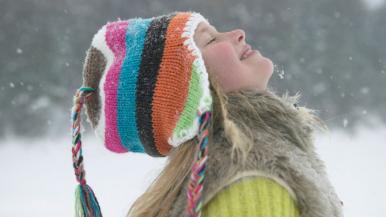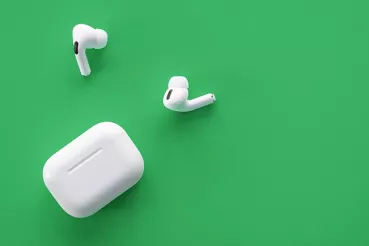So you went out in the cold with wet hair. Now, as your Mom may have warned, you're bound to get sick. Right? Wrong. This is one of the numerous myths and misconceptions about winter health that many people mistakenly accept as fact.
It's not hard to see how some myths get started. For example, people do catch more colds in the winter. But that’s not because it's cold or because the temperature changed abruptly.
In the winter, we spend more time indoors near other people — and as a result, we're more likely to catch viruses.
To help you stay healthier this winter, here are the facts about 5 other common cold-weather beliefs:
1. You lose most of your body heat through your head.
The truth is, any uncovered body part will lose heat, but research has shown that people actually lose no more than 10% of their body heat through their heads.
So while it’s always a good idea to wear a hat when you go outside in the winter to keep warm, a hat alone won't offer sufficient protection from the elements. Dress appropriately from head to toe.
2. Green mucus is a sign of a bacterial infection.
Not true. People often worry when they cough up green mucus, but most of the time it's normal; in fact, it actually means that whatever illness you have is coming to an end.
Yellow mucus, meanwhile, is a sign that your body is still fighting whatever is making you sick, and clear mucus is present at the beginning stages of illness.
3. You can get the flu from a flu shot.
Don't worry: There is no live virus in the shot, so it can't give you the flu (however, the nasal spray vaccine may cause mild flu symptoms). Conversely, getting a flu shot does not guarantee that you won't get the flu; no vaccine is 100% effective.
Neither of these facts should stop you from getting a flu shot. It will protect you from the most common strains of flu, and your symptoms won't be as severe if you do get sick.
4. Dry heat from a radiator can cause a cold or the flu.
False.
Radiator heat can dry out your nasal passages and cause discomfort and nose bleeds, but it can’t cause a respiratory infection.
All exercise is more stressful in cold weather. If you're older than 60 or have questions about your health, see your doctor before participating in any strenuous winter activities, especially shoveling snow.
5. Shoveling snow is associated with a higher risk of heart attack.
"This is actually true," says Gary Schaer, MD, a cardiologist at Rush.
The reason? First, the cold constricts your arteries, increasing the workload on your heart. Sudden, extreme activity, like shoveling only adds to that demand.
"It's a more stressful activity than most winter sports," Schaer says. "In just two minutes, your heart rate can reach a dangerous point."
Healthy, active people should have no trouble shoveling snow. But many don't know they have health risks, such as high blood pressure, high cholesterol or diabetes, so everyone should be careful. Schaer recommends using a small shovel and taking frequent breaks.
All exercise is more stressful in cold weather, according to Schaer. If you're older than 60 or have questions about your health, see your doctor before participating in any strenuous winter activities, especially shoveling snow. Your doctor has the last word on health — and that's no myth.




